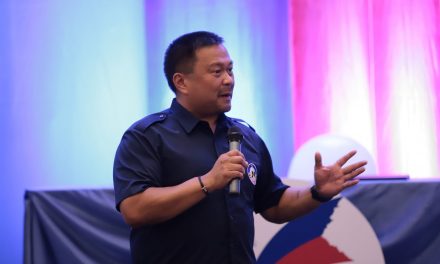SPONSORSHIP SPEECH
Senate Bill No. 2626
LOCAL HOUSING BOARD ACT OF 2015
Mr. President and distinguished colleagues:
This afternoon, it is my privilege to sponsor a bill that recognizes the State’s commitment to make available affordable and decent housing programs for Filipino families. I refer to Senate Bill No. 2626 under Committee Report No. 98 otherwise known as Local Housing Board Act of 2015.
The problem of informal settlers is no longer the problem of Metro Manila, Cebu, and Davao alone. Almost all key cities and municipalities have this predicament. This is the rationale why the housing needs should be pursued seriously by local government units (LGUs). We want to make sure this time that all local governments take the problem or the need of housing seriously.
Local government units play a crucial role in the provision of socialized housing. Hence, it is imperative that local housing boards be mandatorily established in LGUs in order to empower them to implement housing projects in their respective localities. Several LGUs have in fact established their own local housing board. The City of San Juan, in their desire to provide decent housing to informal settlers living in danger zones, was able to accomplish their goal with a local housing board. Right now, the City of San Juan is building medium rise socialized housing for the poor. In cooperation with the National Housing Authority and the City Social Welfare Development Office, they were able to properly monitor and document housing requirements, and eventually provided a new community for them. However, not all local governments have this.
The Local Housing Board Act of 2015 or LHB thus seeks to create local special bodies in 144 cities and in at least 700 first to third class municipalities across the Philippines.
As principal author of this measure, Mr. President, allow me to present Local Housing Board’s three salient features, as follows:
FIRST, the LHB shall enjoin the observance of two Constitutional mandates in the Article of Social Justice and Human Rights, to wit: “the undertaking to establish a continuing program of urban land reform and housing, to respect the right of urban or rural poor dwellers to be evicted in a just and humane manner, and the observance of the right of the people and their organizations to effective and reasonable participation at all levels of social, political, and economic decision-making.”
In recognizing these mandates, the LHB shall be granted power to function as a policy-making body that shall formulate, develop, and recommend policies to the Sanggunian on the provision of decent and affordable housing and resettlement areas; and on the observance of the right of the underprivileged and homeless to just and humane eviction and demolition.
SECOND, the Local Housing Board shall encourage the participation and contribution of various stakeholders from the government and peoples organizations. The board is hence set up with the participation of the Mayor and Vice Mayor as Chairperson and Vice Chairperson respectively. Members of the board also comprise two officials directly under the Office of the Mayor – namely the City or Municipal Planning and Development Officer, and the City or Municipal Engineer.
The Sanggunian Chairperson of the Committee on Housing and Urban Development or its equivalent; a representative from the housing agencies as designated by the Housing and Urban Development Coordinating Council (HUDCC) shall also sit as members, together with representatives from private organizations engaged in subdivision and housing development operating in the city or municipality; people’s organization and non-government organizations operating in the city or municipality; and a representative from the Presidential Commission for the Urban Poor (PCUP).
THIRD, in the establishment of the Local Housing Board comes along the creation of the Local Housing Office in all cities and municipalities, which shall become a regular fixture under the local government unit and shall primarily serve as the principal arm of the Local Housing Board in preparing the local shelter plan, in formulating comprehensive land use plans, overseeing and coordinating government activities related to housing matters such as cases of evictions, demolitions, and relocation, and in enforcing that housing laws, programs, and policies are in place and adopted by the LHB, among others.
In bestowing these tedious housing processes to the LHB, it is our aim to:
a.) PREVENT bureaucratic red tape;
b.) ESTABLISH effective practices aimed at expediting official transactions;
c.) AVOID slow decision-making and government inaction on housing matters, and at the same time;
d.) INSTITUTE a friendly partnership with developers in the locality.
These three points to be brought about by the Local Housing Board Act of 2015 are aimed to transform and address the housing and urban development needs of cities and municipalities nationwide.
Mr. President and distinguished colleagues, the country’s massive population and its concentration in cities, arising concerns in urban development and land use begs for the establishment of the Local Housing Board. It has long been set aside and archived in the legislature for twenty years. It is high time that we pass this landmark bill to arm local governments in their effort to maximize their lands and attain their fullest development.
I thus ask the approval of our distinguished colleagues for the passage of Senate Bill No. 2626 or the Local Housing Board Act of 2015.
Thank you very much.


